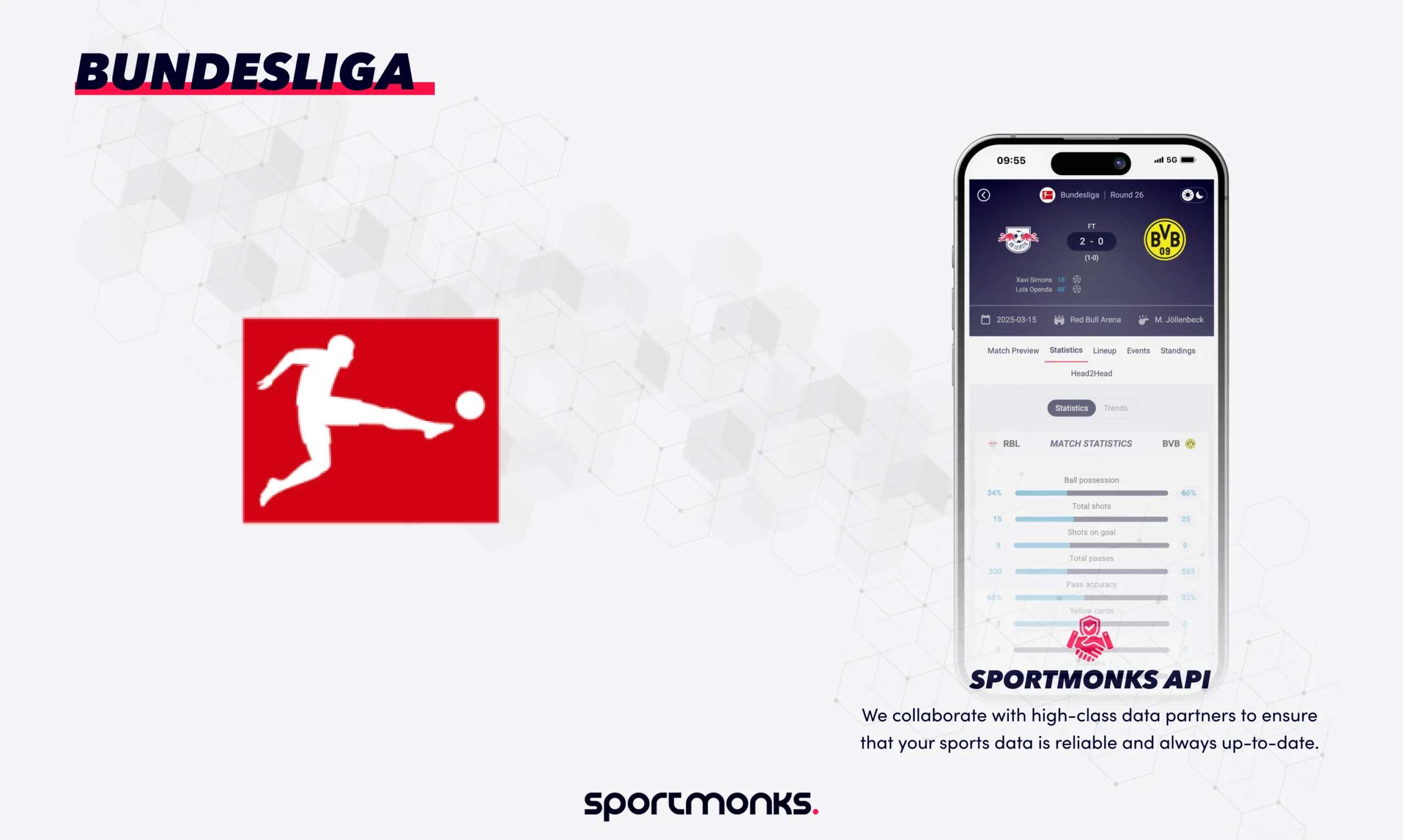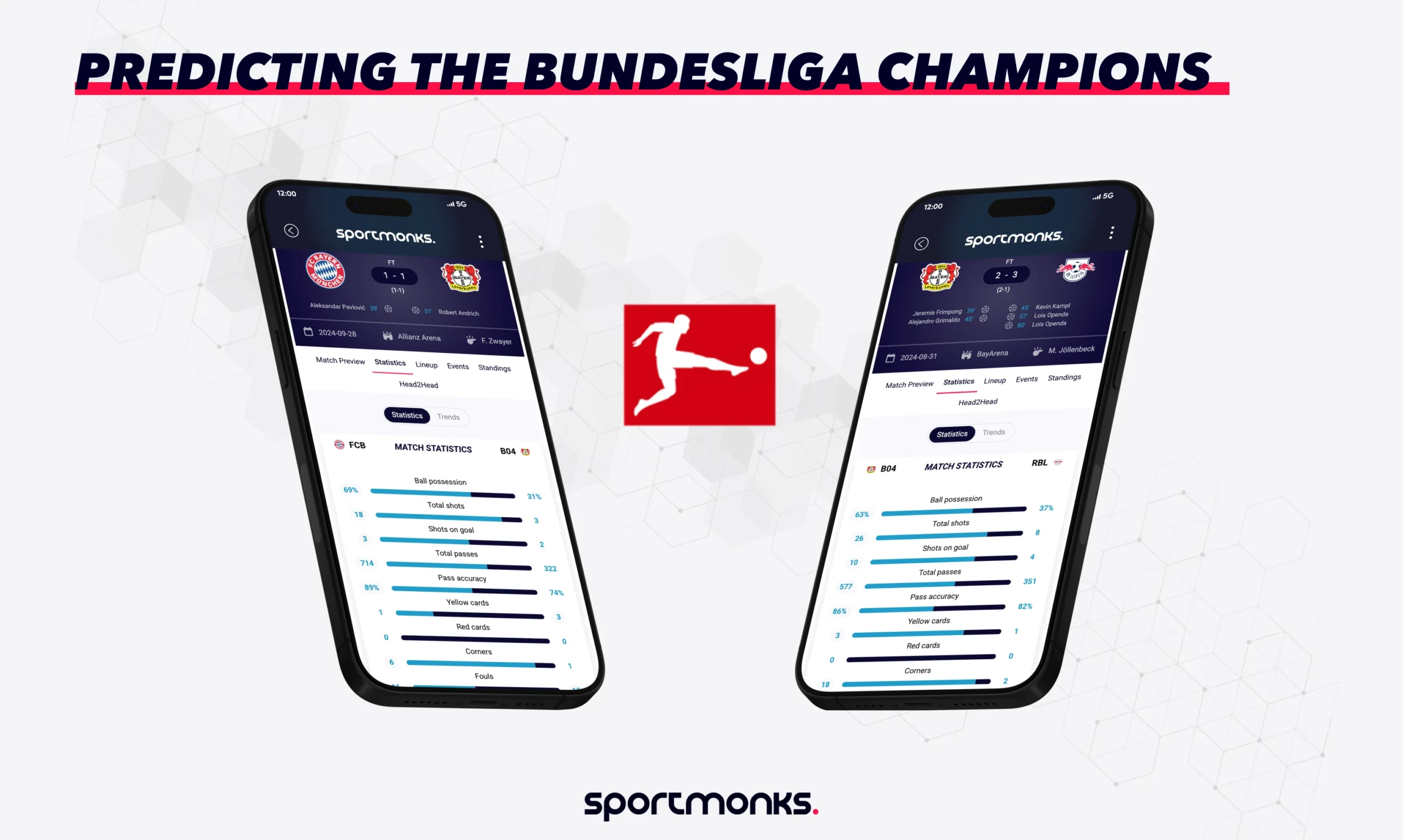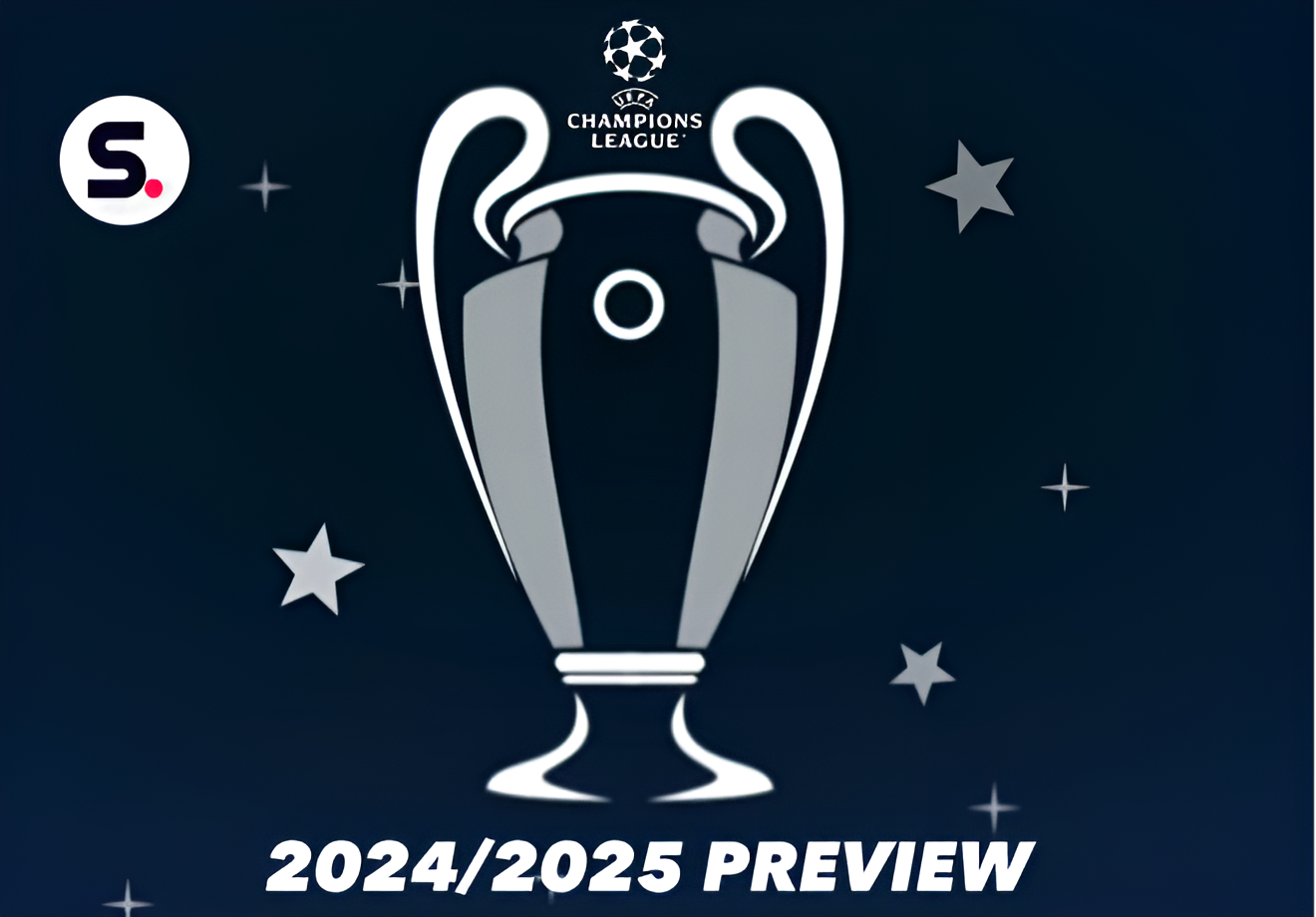
Contents
History of the Bundesliga
While organised football in Germany dates back to the late 19th century, the Bundesliga in its current format was established relatively recently, in 1962. Before its formation, German football was organised into regional leagues. The creation of a unified national league was driven by a desire to improve the competitiveness of German football at the international level.
Key milestones in the Bundesliga’s history
– 1903: The first German football championship is held, marking the beginning of national competition, though not in the Bundesliga format.
– 1962: The Bundesliga is officially founded in Dortmund. 16 teams competed in the inaugural season.
– 1963-64: The first Bundesliga season was played, with FC Köln winning the title.
– 1970s: The era of Bayern Munich’s first period of dominance, with players like Franz Beckenbauer, Gerd Müller, and Sepp Maier leading the club to multiple Bundesliga titles and European Cups.
– 1990s: The rise of Borussia Dortmund as a contender, challenging Bayern Munich’s dominance and winning the Champions League in 1997.
– 2000s: Bayern Munich’s continued dominance, interspersed with periods of success for other clubs like Werder Bremen and VfB Stuttgart.
– 2010s-present: Bayern Munich’s sustained dominance, winning eleven consecutive Bundesliga titles from 2013 to 2023. This era also saw the emergence of players like Robert Lewandowski and Thomas Müller.
How the Bundesliga works
The Bundesliga has a unique format compared to most other top European leagues, most notably featuring 18 teams instead of 20. This leads to a slightly shorter season.
– Format: A double round-robin format is used, meaning each team plays every other team twice—once at home and once away—for a total of 34 matches per season (17 home and 17 away). The season typically runs from August to May.
– Points system: Teams earn 3 points for a win, 1 point for a draw, and 0 points for a loss.
– League table: Teams are ranked in a league table based on their accumulated points. tie-breakers, in order include; goal difference, goals scored, head-to-head results, head-to-head goal difference, head-to-head away goals scored, total away goals scored.
– European competitions qualification: The top four teams in the Bundesliga qualify for the UEFA Champions League group stage. The fifth-placed team qualifies for the UEFA Europa League group stage. The sixth-placed team qualifies for the UEFA Europa Conference League Play-off round. The DFB-Pokal (German domestic cup) winner also qualifies for the UEFA Europa League group stage.
– Relegation: The bottom two teams in the league table at the end of the season are automatically relegated to the 2. Bundesliga (the second tier of German football). The 16th-placed team enters a two-legged relegation play-off against the third-placed team from the 2. Bundesliga to determine the final spot in the following Bundesliga season.
Key teams in the Bundesliga
The Bundesliga has a rich history with many important clubs, but a few have consistently been at the forefront of German football, achieving significant success and building large fanbases.
– Bayern Munich: The most dominant club in Bundesliga history, Bayern Munich has won the league a record 33 times (32 official, 1 unofficial). Known for their financial strength, consistent success, and star-studded squads, Bayern has been the benchmark for German football for decades. Their dominance in the 2010s was particularly remarkable.
– Borussia Dortmund: Bayern Munich’s main rival in recent decades, Borussia Dortmund have won the Bundesliga eight times. Known for their passionate fans, attacking style of play, and focus on developing young talent, Dortmund consistently challenges for top honors and provides exciting competition. Der Klassiker between Bayern and Dortmund is one of the most anticipated matches in German football.
– Borussia Mönchengladbach: A prominent club in the 1970s, Borussia Mönchengladbach won the Bundesliga five times during this period. Known for their attacking style and exciting teams, they remain a historically significant club in German football.
– Werder Bremen: Werder Bremen has won the Bundesliga four times and has a long history of competing at the top level. They are known for their attacking football and have produced many talented players. Among their most notable stars are Miroslav Klose, who began his professional career at Bremen before becoming Germany’s all-time leading goal scorer (71 goals), and Mesut Özil, whose creativity and playmaking skills were honed at Werder before he took the world stage with Real Madrid and Arsenal.
– Hamburger SV: A founding member of the Bundesliga, Hamburger SV has won the league six times. While they have faced struggles in recent years, they remain a historically significant club with a large fanbase. They also held the record for most consecutive seasons in the Bundesliga before being relegated for the first time in 2018.
– VfB Stuttgart: VfB Stuttgart have won the league title five times. They are known for their strong youth academy and have produced many talented players. Among their most celebrated graduates are Jürgen Klinsmann, whose prolific scoring made him a household name in German football, and Sami Khedira, who emerged as a formidable midfielder, later winning multiple titles with Real Madrid and Juventus.
Famous players in the Bundesliga
The Bundesliga has been home to many world-class footballers, renowned for their skill, athleticism, and tactical intelligence. From legendary figures who defined eras to current stars captivating audiences, these players significantly contributed to the Bundesliga’s global appeal.
Iconic players of the past
– Gerd Müller (Bayern Munich): Nicknamed “Der Bomber” (“The Bomber”), Müller is one of the greatest in football history with over 550 goals scored. He holds numerous Bundesliga goal-scoring records and was a key figure in Bayern Munich’s success in the 1970s.
– Franz Beckenbauer (Bayern Munich): Known as “Der Kaiser” (“The Emperor”), Beckenbauer revolutionized the role of the sweeper (libero). He was a highly influential defender and captain for both Bayern Munich and the German national team.
– Karl-Heinz Rummenigge (Bayern Munich): A prolific striker and two-time Ballon d’Or winner, Rummenigge was a key figure in Bayern Munich’s success in the late 1970s and early 1980s.
– Lothar Matthäus (Bayern Munich): A versatile and highly influential midfielder, Matthäus captained both Bayern Munich and the German national team to numerous titles. He was known for his leadership, tackling ability, and powerful shot.
– Jürgen Klinsmann (VfB Stuttgart, Bayern Munich): A prolific striker known for his athleticism and goal-scoring instincts, Klinsmann was a popular figure in the Bundesliga and a key player for the German national team.
– Uwe Seeler (Hamburger SV): A legendary striker for Hamburger SV, Seeler is considered one of the greatest German footballers of all time. He was known for his loyalty to the club and his prolific goal-scoring record
Current stars
– Harry Kane (FC Bayern Munich): One of the most prolific strikers in world football, Kane has brought his goalscoring ability from Spurs to Bayern Munich. Last season (2023/24), he scored an impressive 36 goals in 32 Bundesliga appearances, positioning himself as one of the league’s most lethal forwards.
– Jamal Musiala (Bayern Munich): A highly talented young attacking midfielder, Musiala is considered one of the brightest prospects in world football, known for his dribbling, vision, and technical ability.
– Florian Wirtz (Bayer Leverkusen): A highly creative and talented attacking midfielder, Wirtz is considered one of the top young talents in German football. His ability to control the game’s tempo and his eye for goal have marked him as a player to watch.
– Michael Olise (Bayern Munich): A dynamic winger known for his exceptional dribbling skills and ability to create scoring opportunities, Olise has quickly adapted to the demands of Bayern Munich, adding flair and creativity to an already potent attack. His transfer from Crystal Palace marked him as one of the exciting new faces in German football.
International impact of the Bundesliga
The Bundesliga has significantly impacted the landscape of European and global football, both through the successes of its clubs in continental competitions and the influence of its tactical innovations and player development.
UEFA Champions League/European Cup
– Bayern Munich: With six Champions League/European Cup titles, Bayern Munich is one of the most successful clubs in the competition’s history. Their triumphs, spanning from the 1970s to the present day, have solidified their status as a European powerhouse.
– Borussia Dortmund: Borussia Dortmund won the Champions League in 1997, defeating Juventus in the final. They also reached the final in 2013, but a dying minute magic from Arjen Robben denied them victory.
Hamburger SV: Hamburger SV won the European Cup in 1983.
UEFA Europa League/UEFA Cup
– Eintracht Frankfurt: Eintracht Frankfurt has won the Europa League twice, most recently in 2022.
– Bayern Munich: Bayern Munich has won the UEFA Cup once.
– Bayer Leverkusen: Bayer Leverkusen has won the UEFA Cup once.
– Schalke 04: Schalke 04 has won the UEFA Cup once.
Influence on playing style and tactics
The Bundesliga has definitely had an impact on how football is played around the world. Think about the high-pressing, attacking style – sometimes called “Gegenpressing” – that coaches like Jürgen Klopp used at Borussia Dortmund. That style, with its focus on pressing and winning the ball back quickly, has become really popular. You see lots of teams now trying to play with those quick transitions, fast passing, and aggressive pressing.
The Bundesliga is fast and full of different coaching styles, and Sportmonks makes it simple to follow each team’s tactics. Curious who’s best at keeping the ball or handling pressure? We’ve got the answers—whether it’s Bayern Munich dominating play or Borussia Dortmund racing forward, our live stats, possession details, and easy-to-read numbers like shot accuracy and passing rates show what makes each team strong. Pick the European Plan for €39 monthly with 27 leagues including the Bundesliga, the Worldwide Plan for €129 monthly covering 111 leagues, the Enterprise Plan with custom pricing for over 2,200 leagues, or a Custom Plan just for German football—you’ll see every game clearly. Jump into the data and let Sportmonks perfect your Bundesliga info.
Development of young players
The Bundesliga is also known for being a great place for young players to develop. Lots of talented young players from all over the world come to Germany to improve their skills and start their careers. The league’s focus on structured training and giving young players chances in the first team has helped many of them become international stars. Just look at players like Jude Bellingham, Ousmane Dembélé, and Christian Pulisic – they all spent time in the Bundesliga early in their careers before moving on to bigger leagues.
Bundesliga fan culture
The Bundesliga is renowned worldwide for its vibrant and passionate fan culture. Several factors contribute to this unique atmosphere, making it a key part of the league’s identity.
– Big crowds and cheap tickets: Bundesliga stadiums are usually packed, and that’s partly because tickets are quite affordable. This means more fans can go to games. Also, many German stadiums have standing areas, which create a really lively atmosphere.
– The 50+1 rule: One of the unique things about German football is the “50+1 rule“. This rule basically means that the club’s members – the fans – have to own most of the voting rights in the club. This stops super-rich owners from taking complete control and makes sure the clubs stay connected to their fans.
– Active support and chants: Bundesliga fans are known for their passionate support. They create an incredible atmosphere in the stadiums with organised chants, huge banners, and amazing visual displays. The “Yellow Wall” at Borussia Dortmund’s stadium is especially famous for this.
– Away support: Going to away games is a big part of Bundesliga culture, which is why a lot of fans travel to support their teams.
– Fan initiatives and engagement: Many Bundesliga clubs work closely with their fans. They have people who help fans, supporter groups, and community programs.
Important football data and Sportmonks coverage
Football data sharpens the Bundesliga picture, giving a clear view of its fast-paced matches. Sportmonks’ Football API delivers live updates and statistics for fans, analysts, and developers to explore. It tracks goals, cards, and substitutions as Bayern Munich face Dortmund, plus ball possession and shots to show who’s in control. Historical data covers past seasons—like Leverkusen’s rise—while player stats detail goals, assists, and passing accuracy, such as Kane’s strikes or Wirtz’s skill. This isn’t just for fans; it helps build apps or plan strategies. Sportmonks includes the Bundesliga among over 2,200 leagues, with plans like the European at €39 monthly (27 leagues), Worldwide at €129 monthly (111 leagues), or a custom-priced Enterprise for full access. Want Bundesliga specifics? They’ll adjust it. Visit Sportmonks Football API Plans to dive into Germany’s game.



